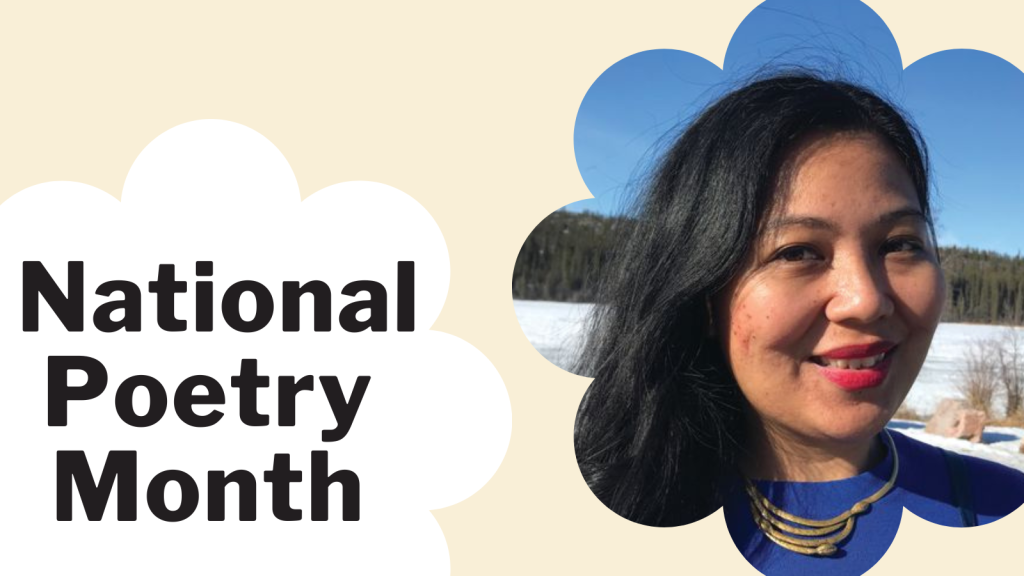National Poetry Month: Poetry as Empowerment

How can poetry set you free?
Our National Poetry Month series continues with a response by Therese Estacion on how poetry reflects the most vulnerable parts of our humanity and returns power to our sense of being:
“ ‘Our poems formulate the implications of ourselves, what we fear within and dare make real…our fears, our hopes, our most cherished terrors.’ —Audre Lorde
In the inner landscape of my psyche, poetry has freed me— from my imprisoned shadows, the muzzle I have placed on my rejected parts.
Poetry has freed me from shame and melancholy, being made Other.
Now, I have learned to touch my most vulnerable parts with tenderness and affection, move past invisibility.
Poetry has made my imagination real and worthy of witnessing.
Loneliness and fear feel more distant these days.”
– Therese Estacion
Therese Estacion is part of the Visayan diaspora community. She spent her childhood between Cebu and Gihulngan, two distinct islands found in the archipelago named by its colonizers as the Philippines, before she moved to Canada with her family when she was ten years old. She is an elementary school teacher and is currently studying to be a psychotherapist. Therese is also a bilateral below knee and partial hands amputee, and identifies as a disabled person/person with a disability. Therese lives in Toronto. Her poems have been published in CV2 and PANK Magazine, and shortlisted for the Marina Nemat Award. Phantompains is her first book.

